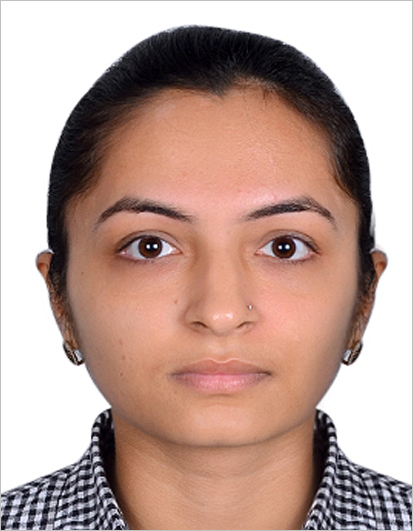ACT Overview
ACT stands for American College Testing. Itis a standardized test used for college admissions in the United States. The ACT Test serves a similar function to the SAT in that both are used by colleges and universities as a factor in admissions. Generally higher secondary students take the ACT so that they can submit their scores to institutesfor application process.
The ACT is comprised of four multiple-choice sections-English, Mathematics, Reading, and Science-and one optional essay section-Writing. Total testing time is 2 hours and 55 minutes for the ACT without Writing and 3 hours and 35 minutes for the ACT with Writing.
Test Format
The following sections compose the GRE test
| Mathematics test | (60 questions, 60 minutes) (1-36 Score) |
| ii) Reading test | (40 questions, 35 minutes) (1- 36 Score) |
| iii) Science test | (40 questions, 35 minutes) (1-36 Score) |
| iv) English test | (75 questions, 45 minutes) (1-36 Score) |
| v) Writing test | (optional; 1 prompt, 40minutes) (2-12 Score) |
| Total Time | ACT without Essay - 3 hours Approx. ACT with Essay - 3 hours and 40 minutes Approx. |
| Nature of Exam | Paper Based Test |
| Total Scores | ACT score is out of 36 |
Brief on Each Section
The required portion of the ACT is divided into four multiple choice subject tests: English, mathematics, reading, and science reasoning. Subject test scores range from 1 to 36; all scores are integers.In addition, students taking the optional writing test receive a writing score ranging from 2 to 12 that does not affect the composite score.
Each question answered correctly is worth one raw point, and there is no penalty for marking incorrect answers on the multiple-choice parts of the test; a student can answer all questions without a decrease in their score due to incorrect answers.
English
The first section is the 45-minute English test covering usage/mechanics, sentence structure, and rhetorical skills. The 75-question test consists of five passages with various sections underlined on one side of the page and options to correct the underlined portions on the other side of the page. Specifically, questions focus on usage and mechanics – issues such as commas, apostrophes, modifiers, colons, and fragments and run-ons – as well as on rhetorical skills – style, strategy, transitions, and organization– and sentence structure – constructing sentences in a stylistically and grammatically correct manner.
Maths
The second section is a 60-minute, 60-question math test with the usual distribution of questions being approximately 14 covering pre-algebra, 10 elementary algebra, 9 intermediate algebra, 14 plane geometry, 9 coordinate geometry, and 4 elementary trigonometry questions. However, the distribution of question topics varies from test to test. The difficulty of questions usually increases as you get to higher question numbers. Calculators are permitted in this section only.
Reading
The reading section is a 35-minute, 40-question test that consists of four sections, three of which contain one long prose passage and one which contains two shorter prose passages. The passages are representative of the levels and kinds of text commonly encountered in first-year college curricula. This reading test assesses skills in three general categories: key ideas and details, craft and structure, and integration of knowledge and ideas.
Science Reasoning
The science reasoning test is a 35-minute, 40-question test. There are seven passages each followed by five to seven questions. The passages have three different formats: Data Representation, Research Summary, and Conflicting Viewpoints. While the format used to be very predictable (i.e. there were always three Data Representation passages with 5 questions following each, 3 Research Summary passages with six questions each, and one Conflicting Viewpoints passage with 7 questions), when the number of passages was reduced from 7 to 6, more variability in the number of each passage type started to appear.
Writing
The optional writing section, which is always administered at the end of the test, is 40 minutes. While no particular essay structure is required, the essays must be in response to a given prompt; the prompts are about broad social issues, and students must analyse three different perspectives given and show how their opinion relates to these perspectives. The essay does not affect the composite score or the English section score; it is only given as a separate writing score and is included in the ELA score.
FAQs
Q. When should I test?
Pick a test date that is at least two months ahead of the application deadlines of all the colleges and scholarship agencies you might want to apply to. Scores for the ACT are normally reported within 2–8 weeks after the test date. If you take the ACT with writing, scores will be reported only after all of your scores are available, including writing, normally within 5–8 weeks after the test date.
Q. What is the difference between the ACT and SAT?
| Test Structure |
|
|
| Length |
|
|
| Reading |
|
|
| Science | None |
1 science section testing your critical thinking skills (not your specific science knowledge) |
| Math | Covers:
|
Covers:
|
| Calculator Policy | Some math questions don't allow you to use a calculator. |
You can use a calculator on all math questions. |
| Essays | Optional. The essay will test your comprehension of a source text. |
Optional. The essay will test how well you evaluate and analyze complex issues. |
| How It's Scored | Scored on a scale of 400–1600 |
Scored on a scale of 1–36 |
A. The first sections of the Verbal and Quantitative Reasoning parts range from the levels of 'Easy' to 'Difficult'. Each subsequent section is administered based on the student's overall performance in the preceding section. A score of 130 - 170 per section is generated for the Verbal and Quantitative sections. Both scores are then added to give a total score of 260 - 340.
Q. Who can take the ACT?
A. People of all ages and grade levels are eligible to take the ACT. This includes students in grades 6, 7, 8, and 9 and high school graduates. Of course you'll need to register and pay the test fees.
Q. Can I get a copy of the test questions and answer key?
A. Yes; through our Test Information Release (TIR) service, but only if you test at a national test center on selected national test dates in December, April and June.
Q. Should I appear for ACT more than once?
A. Many students test twice, once as a junior and again as a senior. You should definitely consider retesting if you had any problems during testing, such as misunderstanding the directions, or feeling ill.
You may also want to consider retesting if you don't believe that your scores accurately represent your abilities, especially if you see a discrepancy between your ACT scores and your high school grades, or if you have subsequently completed coursework in the areas covered by the ACT.
If you test more than once, you determine which set of scores are sent to colleges or scholarship programs. ACT reports scores from only one test date per report.
Q. When is the ACT given?
A. The ACT is offered nationally in the same five months every year. These months are October, December, February, April and June. In selected states, the ACT is also administered in late September.
Q. When should I register for the ACT?
A. There is no set time to take the ACT. Students usually take the exam in the spring semester of 11th grade, because the exam content covers class materials up to that time. Most students find it helpful to have their ACT scores in hand when they begin the application process. In addition, taking the exam during 11th grade leaves ample time for preparation and retakes if your first score is unsatisfactory.
Miscellaneous Details
Score Validity: 5 years
Test Fee: $46 (without writing exam)
$62.50 (with writing exam)
Score reporting time: 2 weeks (app)
Nature of Test: Computer based test
Test Repetition Policy: Once calendar month and five times a calendar year
Late registration fee: $29.50
Registration Mode: Mail/ Online/ Telephone















